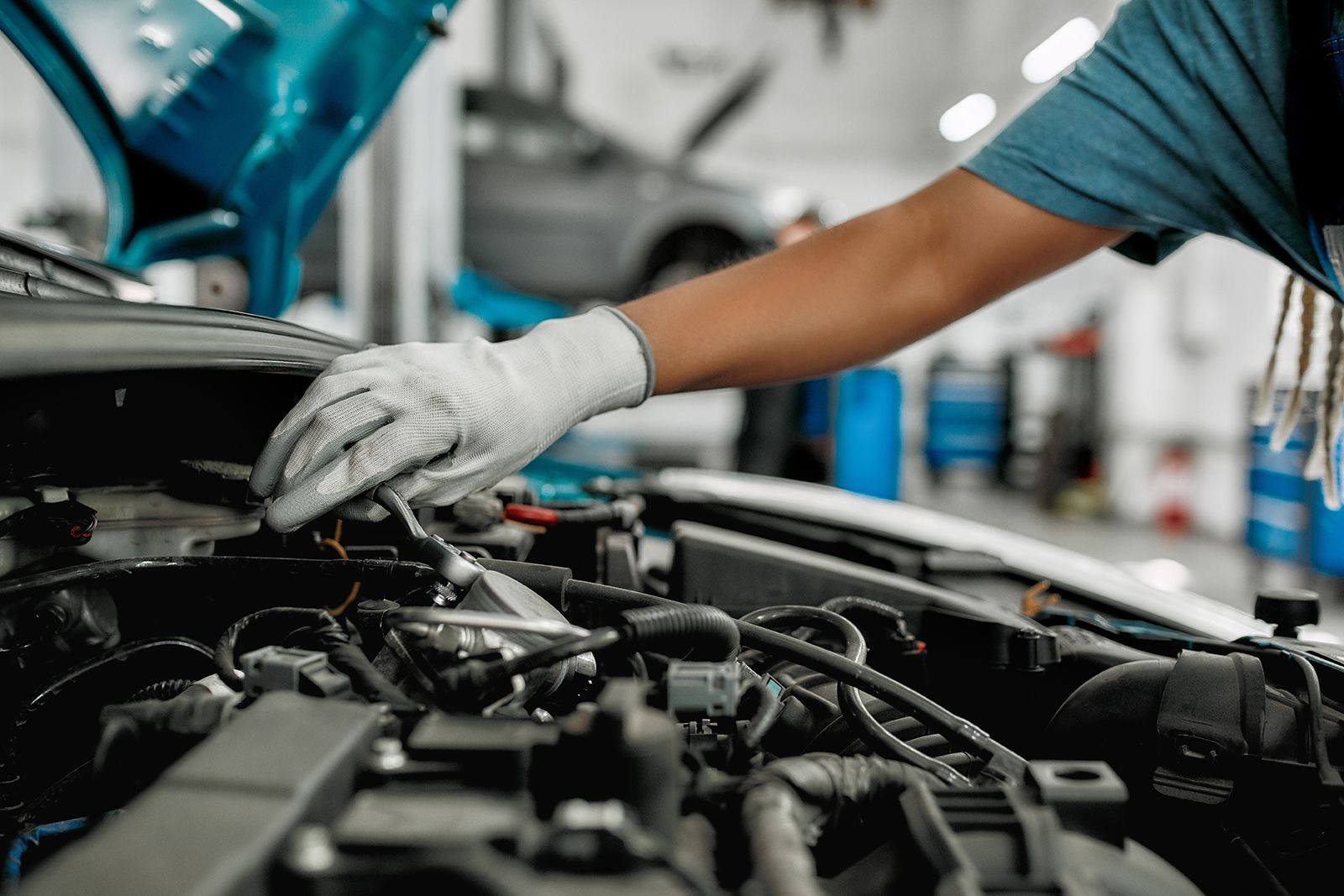All Categories
Featured
The increase of electrical vehicles (EVs) has produced considerable improvements in sustainable transportation, yet it also offers an expanding issue: what happens to EV batteries when they are no much longer useful? These batteries, which include important materials such as cobalt, lithium, and nickel, can not just be discarded. Reusing them is important to decrease environmental harm and recoup important resources. Repair stores have actually entered this space, offering electric vehicle battery recycling services to meet the needs of eco-conscious EV proprietors.
![]()
Environmental Security: Avoiding harmful chemicals from contaminating dirt and water. Source Recuperation: Drawing out multiple-use materials like lithium and cobalt to lower the requirement for new mining procedures. Power Performance: Recycling makes use of much less energy than sourcing raw products, adding to a reduced carbon footprint. As numerous EV batteries are anticipated to reach the end of their lifecycle in the coming years, the need for recycling remedies has never been higher.
Collection and Safe Storage: Many service center gather utilized EV batteries from customers and save them securely till they can be moved to reusing centers. Collaborations with Recyclers: Shops commonly collaborate with specialized reusing companies that essence and repurpose important products. Repurposing Efforts: Some batteries, although no longer ideal for automobiles, can be repurposed for fixed energy storage services, a solution some fixing stores help with. 3. Collaborations with Manufacturers and Recycling Programs. To simplify the recycling procedure, repair service shops usually companion with EV suppliers and third-party recyclers. Examples consist of:
Producer Programs: Brands like Nissan and BMW have actually implemented battery reusing campaigns, utilizing qualified service center to collect and manage used batteries. Third-Party Recyclers: Business like Redwood Products and Li-Cycle work with independent service center to recycle batteries from various EV brand names. These collaborations make certain that recycling is dealt with properly and successfully, with marginal ecological impact.
Benefit: Clients can recycle batteries locally without browsing complicated recycling networks. Cost Financial savings: Some stores use trade-in credit scores or discounts on replacement batteries when consumers reuse their old ones. Sustainability Guarantee: Partnering with respectable stores assurances that batteries are recycled in conformity with ecological laws. 5. Difficulties in Expanding Recycling Services. Regardless of progress, there are difficulties to making battery reusing widely readily available:
Educating Demands: Managing EV batteries safely calls for customized knowledge and tools, which not all service center possess. Expense of Recycling: Delivering and processing batteries can be costly, positioning an obstacle for smaller stores. Limited Infrastructure: In some areas, accessibility to reusing centers is still underdeveloped. Producers and governments are functioning to deal with these problems through incentives, funding, and research right into extra efficient recycling modern technologies.
![]()
Conclusion. Yes, service center using electrical vehicle battery recycling are coming to be a crucial part of the EV ecological community. By teaming up with manufacturers, recyclers, and ecological programs, these businesses are aiding to make sure that the shift to electric transportation is as sustainable as feasible.
For EV proprietors, picking service center with recycling capacities is not just a practical decision yet likewise a responsible one. Together, repair service shops, makers, and customers can produce a sustainable future where EV batteries are not wasted but repurposed, reused, and recycled for the advantage of the world.

- The Relevance of Reusing EV Batteries. Unlike typical cars and truck batteries, EV batteries are complicated and huge, with special recycling requirements. Correct recycling is essential for numerous reasons:
Environmental Security: Avoiding harmful chemicals from contaminating dirt and water. Source Recuperation: Drawing out multiple-use materials like lithium and cobalt to lower the requirement for new mining procedures. Power Performance: Recycling makes use of much less energy than sourcing raw products, adding to a reduced carbon footprint. As numerous EV batteries are anticipated to reach the end of their lifecycle in the coming years, the need for recycling remedies has never been higher.
- Just How Repair Service Shops Add To Battery Recycling. Repair shops play an important duty in the EV ecosystem by providing obtainable and reliable recycling options. Below's just how they sustain sustainability:
Collection and Safe Storage: Many service center gather utilized EV batteries from customers and save them securely till they can be moved to reusing centers. Collaborations with Recyclers: Shops commonly collaborate with specialized reusing companies that essence and repurpose important products. Repurposing Efforts: Some batteries, although no longer ideal for automobiles, can be repurposed for fixed energy storage services, a solution some fixing stores help with. 3. Collaborations with Manufacturers and Recycling Programs. To simplify the recycling procedure, repair service shops usually companion with EV suppliers and third-party recyclers. Examples consist of:
Producer Programs: Brands like Nissan and BMW have actually implemented battery reusing campaigns, utilizing qualified service center to collect and manage used batteries. Third-Party Recyclers: Business like Redwood Products and Li-Cycle work with independent service center to recycle batteries from various EV brand names. These collaborations make certain that recycling is dealt with properly and successfully, with marginal ecological impact.
- Benefits for EV Proprietors. Repair stores offering battery recycling services offer considerable advantages to EV proprietors:
Benefit: Clients can recycle batteries locally without browsing complicated recycling networks. Cost Financial savings: Some stores use trade-in credit scores or discounts on replacement batteries when consumers reuse their old ones. Sustainability Guarantee: Partnering with respectable stores assurances that batteries are recycled in conformity with ecological laws. 5. Difficulties in Expanding Recycling Services. Regardless of progress, there are difficulties to making battery reusing widely readily available:
Educating Demands: Managing EV batteries safely calls for customized knowledge and tools, which not all service center possess. Expense of Recycling: Delivering and processing batteries can be costly, positioning an obstacle for smaller stores. Limited Infrastructure: In some areas, accessibility to reusing centers is still underdeveloped. Producers and governments are functioning to deal with these problems through incentives, funding, and research right into extra efficient recycling modern technologies.

- The Future of EV Battery Recycling. As the EV market continues to expand, the duty of repair work shops in battery recycling will certainly become even more important. Governing requirements are motivating suppliers and repair work networks to develop extensive recycling systems. Arising modern technologies are likewise enhancing the efficiency of product recuperation, making recycling more affordable and widely accessible.
Conclusion. Yes, service center using electrical vehicle battery recycling are coming to be a crucial part of the EV ecological community. By teaming up with manufacturers, recyclers, and ecological programs, these businesses are aiding to make sure that the shift to electric transportation is as sustainable as feasible.
For EV proprietors, picking service center with recycling capacities is not just a practical decision yet likewise a responsible one. Together, repair service shops, makers, and customers can produce a sustainable future where EV batteries are not wasted but repurposed, reused, and recycled for the advantage of the world.
Latest Posts
Your Local Roofing Professionals - A-Abel Roofing
Published Jan 07, 25
1 min read
A-Abel Roofing: Building Durable Roofs for the Future
Published Jan 07, 25
1 min read
Exactly How Do Eco-Friendly Fixing Shops Lower Their Environmental Influence?
Published Jan 07, 25
0 min read